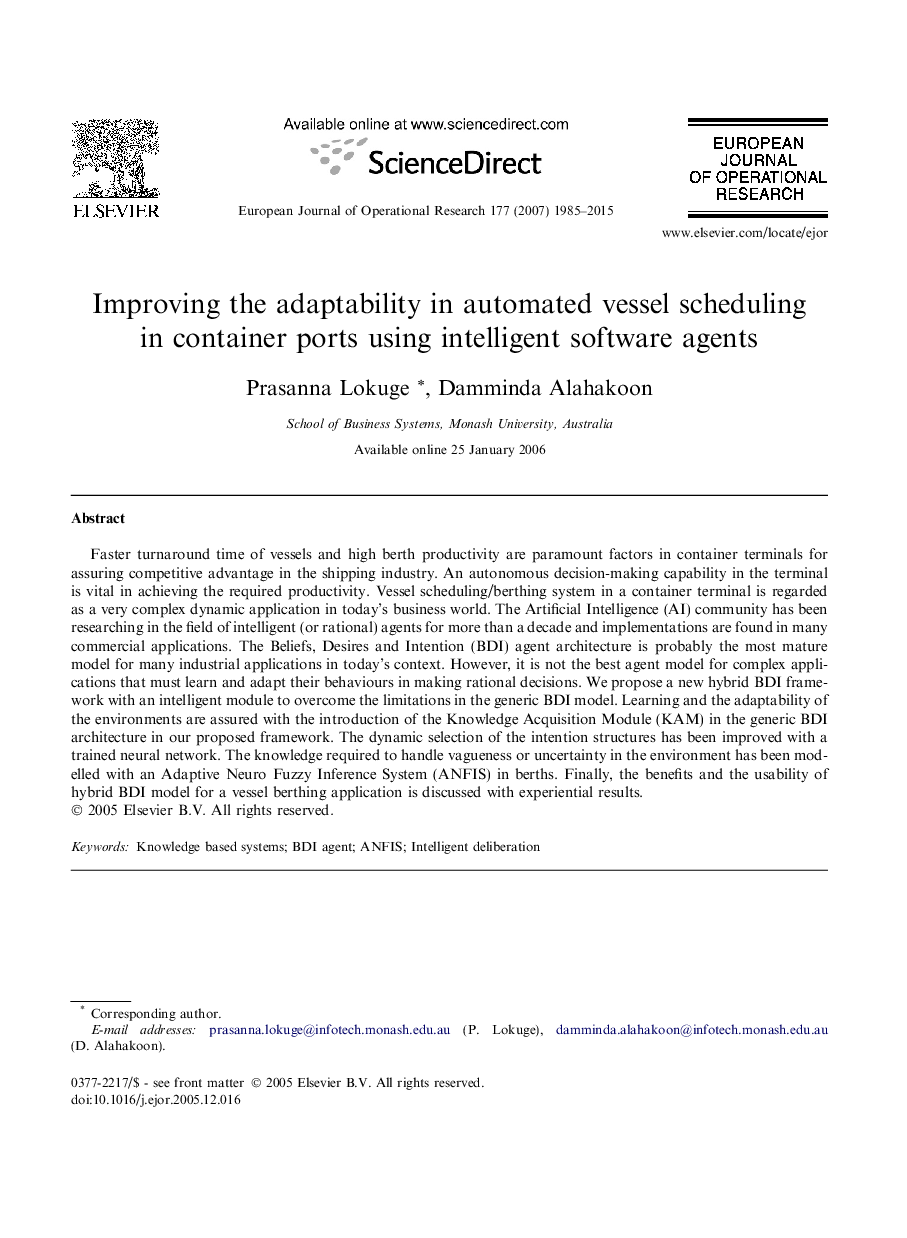| Article ID | Journal | Published Year | Pages | File Type |
|---|---|---|---|---|
| 483281 | European Journal of Operational Research | 2015 | 31 Pages |
Faster turnaround time of vessels and high berth productivity are paramount factors in container terminals for assuring competitive advantage in the shipping industry. An autonomous decision-making capability in the terminal is vital in achieving the required productivity. Vessel scheduling/berthing system in a container terminal is regarded as a very complex dynamic application in today’s business world. The Artificial Intelligence (AI) community has been researching in the field of intelligent (or rational) agents for more than a decade and implementations are found in many commercial applications. The Beliefs, Desires and Intention (BDI) agent architecture is probably the most mature model for many industrial applications in today’s context. However, it is not the best agent model for complex applications that must learn and adapt their behaviours in making rational decisions. We propose a new hybrid BDI framework with an intelligent module to overcome the limitations in the generic BDI model. Learning and the adaptability of the environments are assured with the introduction of the Knowledge Acquisition Module (KAM) in the generic BDI architecture in our proposed framework. The dynamic selection of the intention structures has been improved with a trained neural network. The knowledge required to handle vagueness or uncertainty in the environment has been modelled with an Adaptive Neuro Fuzzy Inference System (ANFIS) in berths. Finally, the benefits and the usability of hybrid BDI model for a vessel berthing application is discussed with experiential results.
